Programme Introduction:
"Shikshaantar," a transformative educational initiative by the Tech Mahindra Foundation, strives to revolutionize educational environments by empowering teachers and stakeholders. Launched in 2006, the program addresses the dearth of motivated and competent educators, focusing on improving learning outcomes and fostering safer, happier classrooms. Through partnerships with government bodies, NGOs, and corporate entities, Shikshaantar aims to bridge gaps in pedagogical skills and subject competencies.
Implemented across multiple states since 2013, Shikshaantar emphasizes translating education policies into actionable programs, increasing teacher efficiency, integrating research into practice, fostering peer learning, and promoting a culture of reflection. Notably, the initiative extends beyond traditional classrooms, incorporating initiatives like Mobile Science Labs and safety awareness campaigns. 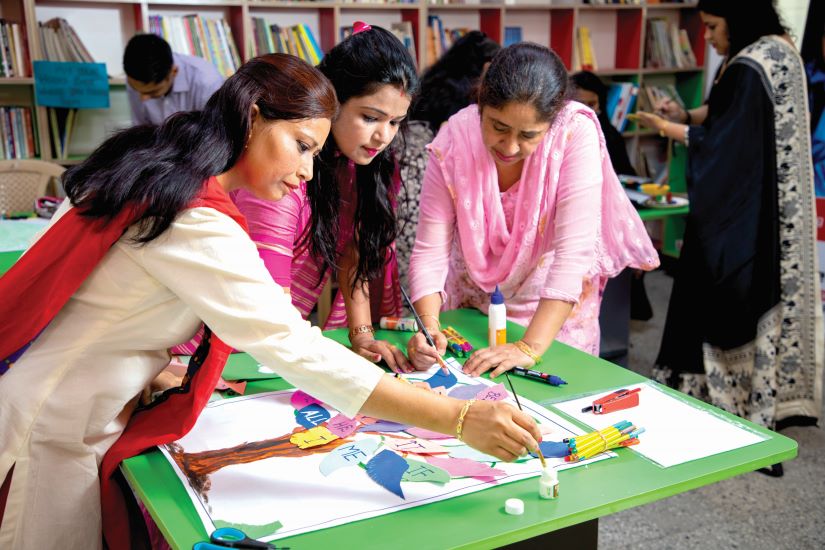
Despite challenges, such as the shift to online platforms during the COVID-19 pandemic, Shikshaantar demonstrates adaptability and resilience. With a robust monitoring and evaluation framework in place, the program has seen significant growth, reaching thousands of trainees annually. Key lessons include the importance of cross-sectoral partnerships, parental involvement, and holistic approaches to education. Shikshaantar stands as a beacon of innovation, advocating for a brighter future through empowered educators and enriched learning environments.
The Initiative:
Founded in 2006, the Tech Mahindra Foundation prioritizes education, employability, and disability, aiming for a significant societal impact. The foundation’s mission is to enable children to be purposefully engaged, youth to be constructively employed and equal opportunities for people with disabilities. The Foundation works with the mandate that 50% of its beneficiaries are women and 10% are persons with disabilities.
The project "Shikshaantar," aimed at transforming educational environments, is designed to enhance pedagogical skills and competencies among educators. It aims at inculcating happier and safer classrooms by empowering the teachers, educators, administrators and related stakeholders in pedagogical skills and competencies related to subject teaching.
The project collaborates with various stakeholders, including government bodies and NGOs, indicating a broad and inclusive approach to improving educational outcomes.
Problem Statement and Project Objective:
A low number of motivated, competent teachers in the educational system have a negative impact on the school ecosystem, students’ achievement and overall performance, and the future workforce. This project aims at bringing change in this domain with the objective of improving learning outcomes through teacher empowerment, upskilling, skilling, capacity building, effective school governance and enhancing parental involvement in the school education.
Solution Framework:
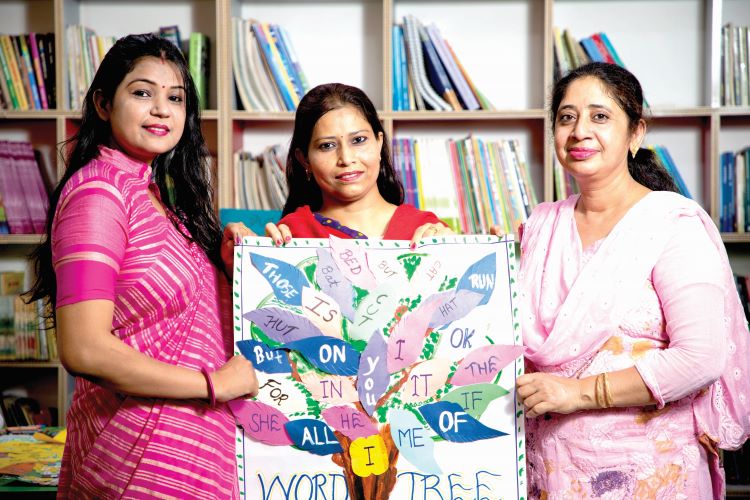 Shikshaantar was developed as a capacity-building program for teachers and other stakeholders in school education, with a vision to create happier and safer classrooms. The program facilitates the development of pedagogical skills and subject-related competencies for school teachers and teacher educators in elementary education. It promotes child-centred learning to foster the overall development of students.
Shikshaantar was developed as a capacity-building program for teachers and other stakeholders in school education, with a vision to create happier and safer classrooms. The program facilitates the development of pedagogical skills and subject-related competencies for school teachers and teacher educators in elementary education. It promotes child-centred learning to foster the overall development of students.
Implementation Strategy:
The project is operational since the year 2013 and now running in the states of Delhi, Telangana and outreach projects in Rajasthan, Haryana, Nagaland. The project partners include Sahayata Trust, McMillan, Fortis Healthcare, Entecres Lab. The approximate expenditure on the project in 2022 was INR 4 Crore.
The building blocks of the programme includes
- Translating the National/ State Education policies into sustainable implementation programs for Education Departments in Teacher Education. Developing TE programs for domains like Inclusive Education, Physical Education, (Eg: NEP 2020, Nipun Bharat etc)
- Increasing the number of efficient, skilled teachers for creating happier and safer classrooms.
- Bridging the gap between Research and Practice by inculcating new research ideas, strategies, and perspectives in teacher education curriculum and classroom-based teaching.
- Creating a platform for peer learning and a strong community of teachers for sharing best practices.
- Creating a culture of learning and reflection for teachers. Giving them opportunities to contemplate their own misconceptions and biases towards learning.
The Foundation operates three premier In-Service Teacher Education Institutes (ITEIs) in collaboration with the Municipal Corporation of Delhi (MCD). These ITEIs function under Public Private Partnership (PPP) to ensure that all girls and boys have access to quality early childhood and primary education. This is achieved by substantially increasing the supply of qualified teachers, administrators, school principals, and school inspectors.
The project is running in partnership with Sahatya Trust in the state of Tamil Nadu.
Also, the Tech Mahindra Foundation collaborated with the Tripura and Telangana State Governments to enhance Teacher Capacity Building and work with DIETs (District Institute of Education and Training) faculties.
Within the ambit of the project is a Mobile Science Lab where the Lab visits the Government School, giving students an opportunity to explore STEM education to build scientific temperament among students. It also helps in capacity building of teachers towards application of science and technology on STEM. This is done through a lot of hands-on experiments and science kits where students love to appreciate the science in everyday life.
During COVID, the programme also focussed on the safety concerns for children while generating awareness on physical, emotional, cyber safety and on child sexual abuse. A lot of initiatives like safety walk in the schools with the SMCs, Safety Audit of the schools, Child Safety Week, Awareness sessions on Cyber security and Child Sexual Abuse were conducted. During that period, it trained all the 1500 MCD schools on First Aid and CPR to create the first line of safety at schools.
For a more comprehensive approach towards building capacity of the school system, it works intensively with all cohorts of teachers including pre-primary, primary, ICT teachers, special educators, physical educators and school principals. Customised curriculum is prepared and assessment is done for each cohort to bridge the skill gap of the teachers. For example, Indian Sign Language (ISL) courses are conducted in sync with assistive technology for all the special educators to help Children with Special Needs (CWSN). It also worked with AWWs (Aanganwadi workers) in Health and Nutrition.
Measuring Success:
During the last three years, the reach of the programme has expanded significantly.
- FY20: 3797 trainees
- FY21: 6378 trainees
- FY22: 9573 trainees
Challenges and Overcoming Them:
During COVID, the project faced significant challenge as it had to shift focus from only face to face programs to online. The entire curriculum was designed to conduct online courses. A lot of processes and program was realigned to conduct everything online. That process of change brought a lot of learning and opportunities to expand the reach of the program to different states (for example, signed MoU with Tripura state Govt. to train teachers on ICT, etc) and conducted more courses in a hybrid version. The project now boasts of online self-paced; synchronous and asynchronous courses for teachers. These courses help all the teachers to get upskilled even in the remote geographies.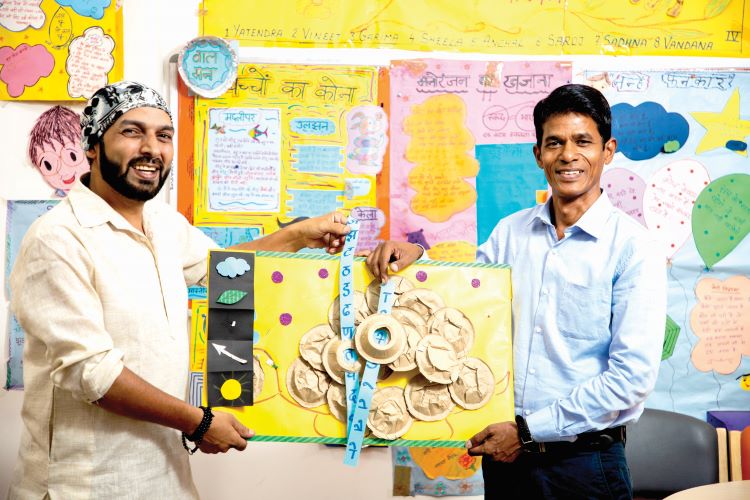
Also, a robust M&E framework is in place where Classroom Observations, Peer Community and LMS is helping in tracking the effectiveness of the program more accurately.
Learning, Scalability and Replication:
- Teachers' Capacity Building: Enhancing teachers' capacity can significantly improve classroom outcomes and overall learning environments.
- Comprehensive Learning Approach: Effective learning involves focusing on three essential components: Knowledge, Skills/Competencies, and Attributes and Values. The program should incorporate targeted interventions for all three components.
- Cross-Sectoral Partnerships: Collaborating with various sectors such as health, vocational, and physical education can positively impact the program's efficiency. It is crucial to seek inputs and support from these diverse areas.
- Active Involvement of Parents, Schools, and Communities: Treating parents, schools, and communities as active partners in collaboration strengthens the program's impact and fosters a sense of collective responsibility for education.
- Holistic Approach: Adopting a holistic approach to the well-being of both teachers and students ensures a nurturing and supportive educational environment.
- Resilience and Problem-Solving: Encouraging resilience and problem-solving skills among all stakeholders empowers them to overcome challenges effectively and create sustainable solutions.
Conclusion:
Tech Mahindra Foundation's Shikshaantar initiative has significantly impacted educational landscapes by empowering teachers, fostering safer classrooms, and enhancing learning outcomes. Through innovative approaches, cross-sectoral partnerships, and adaptability during challenges like the COVID-19 pandemic, Shikshaantar continues to pave the way for transformative education nationwide.




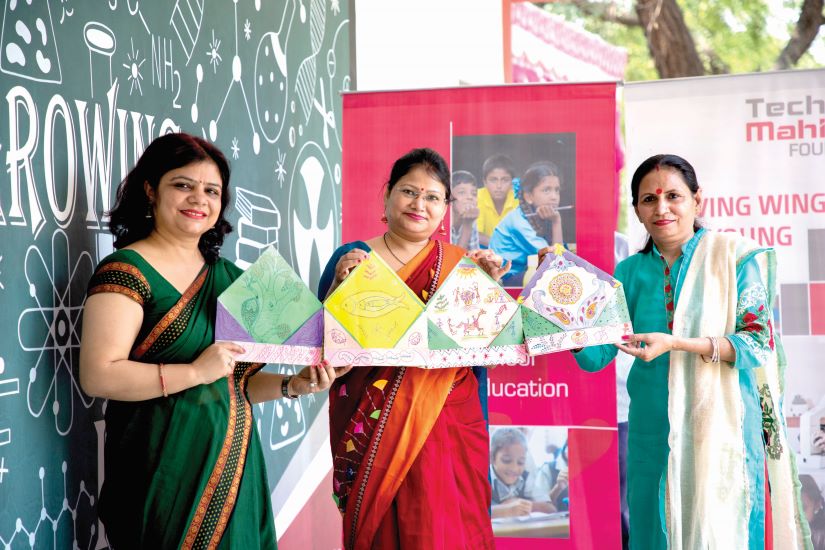

 Shikshaantar was developed as a capacity-building program for teachers and other stakeholders in school education, with a vision to create happier and safer classrooms. The program facilitates the development of pedagogical skills and subject-related competencies for school teachers and teacher educators in elementary education. It promotes child-centred learning to foster the overall development of students.
Shikshaantar was developed as a capacity-building program for teachers and other stakeholders in school education, with a vision to create happier and safer classrooms. The program facilitates the development of pedagogical skills and subject-related competencies for school teachers and teacher educators in elementary education. It promotes child-centred learning to foster the overall development of students.
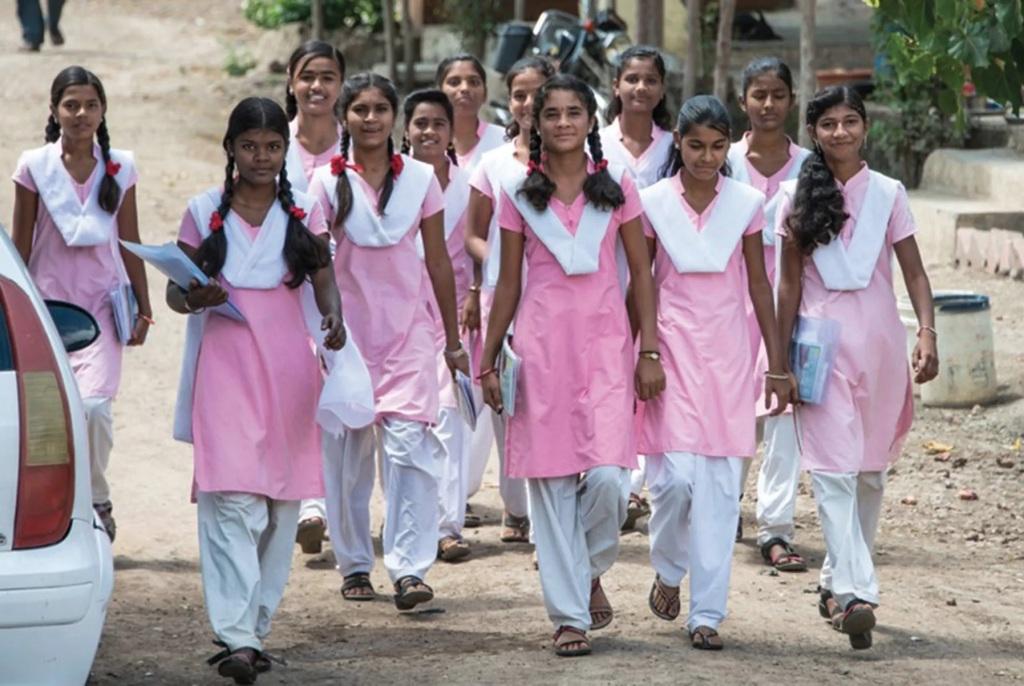


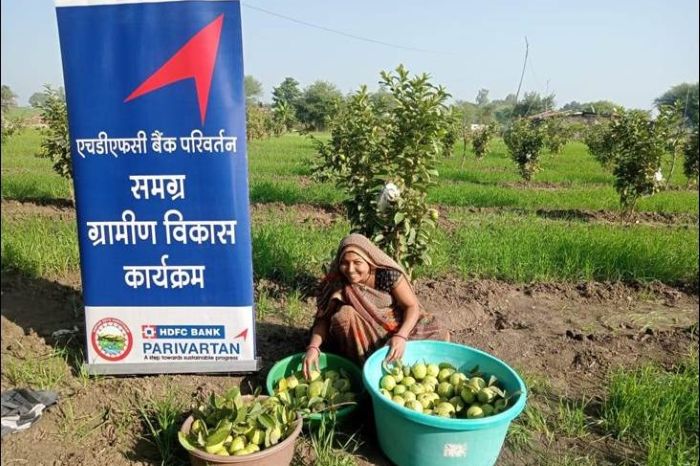
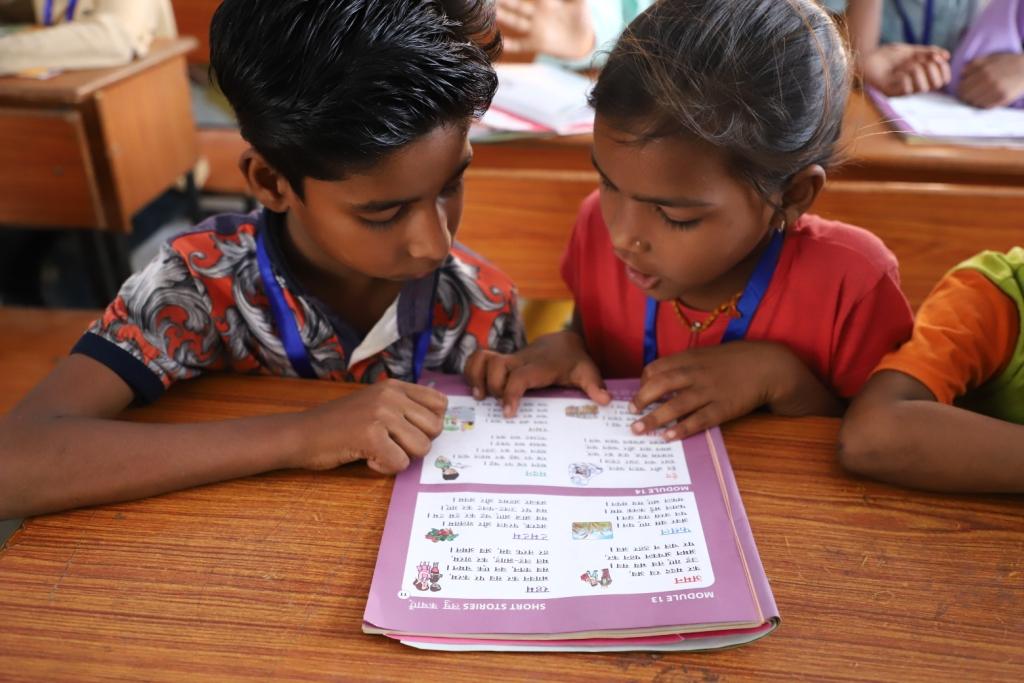
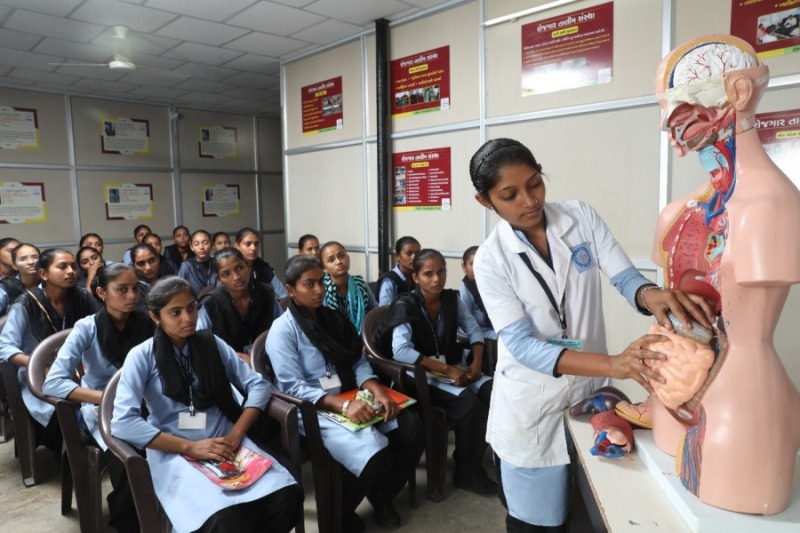

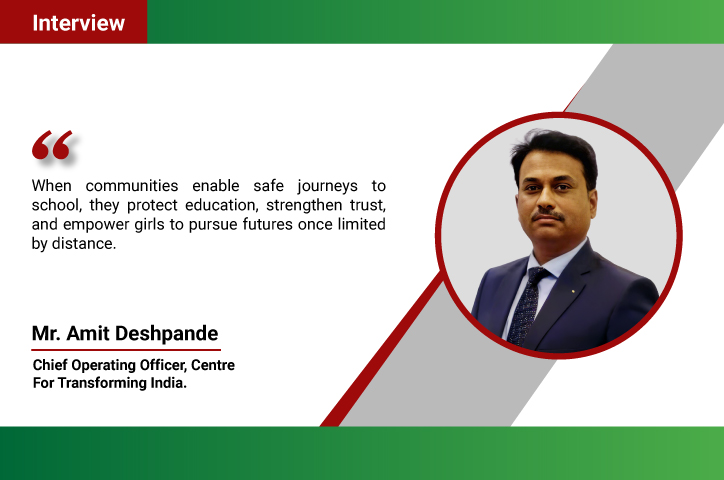






.jpg)



